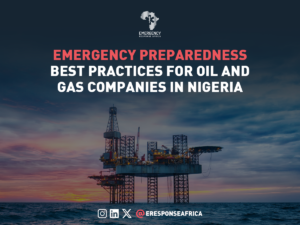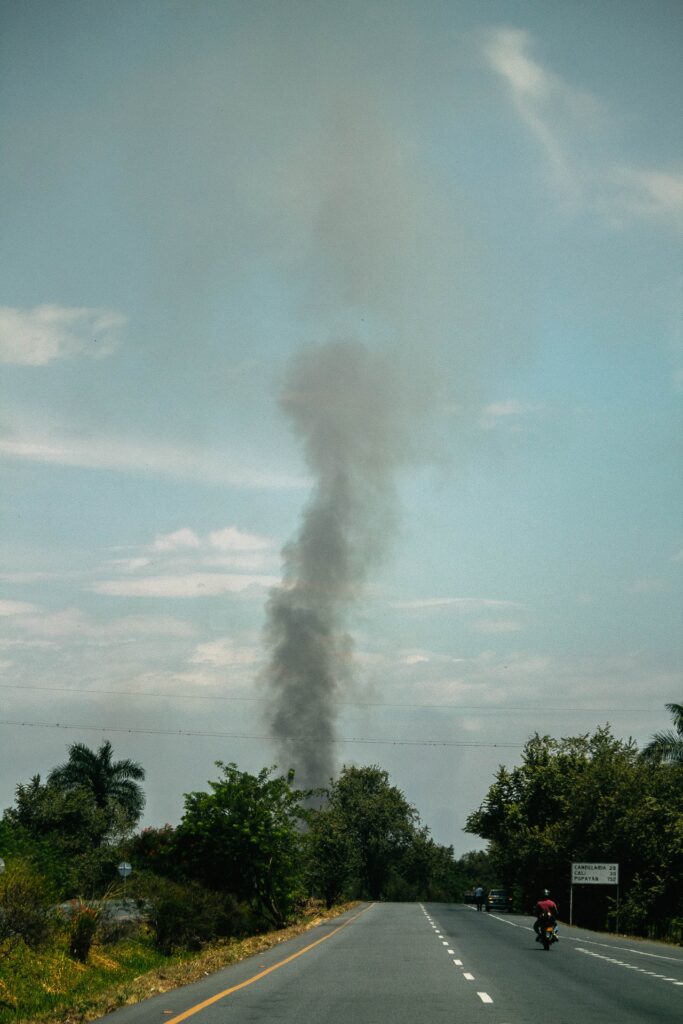A business emergency plan is an assessment of likely threats in your office space. It’s a guideline on how workers can respond to these threats when they occur, and how to prevent them from happening in the first place.
Experts say that 25% of businesses don’t ever recover when disaster strikes. Flooding, hurricane, tornadoes, are types of disasters capable of halting your business operations indefinitely. But your business doesn’t have to be a statistic; you can get hit by an unexpected disaster and still function without closing shop. All you need is a business emergency plan.
Below is a simple guideline on the essential factors to consider when making a business emergency plan.
1. Know your environment
Every environment has a set of disasters it is prone to. Businesses on the island part of Lagos for instance are more prone to flooding.
The kind of disaster you are likely to face determines what you plan for. To find out your likely threat, scour the internet or ask neighbors for past threats.
2.Assess your work environment for its ability to withstand these disasters.
The physical setup of your workplace determines the extent to which your business can survive a disaster.
E.g low rise buildings are susceptible to flooding and require placing valuable items in high positions.
You can hire a professional threat assessment company to get an expert view on the vulnerabilities of your work space.
3.Provide lifesaving tools
With a hazard assessment completed you should know the essential safety equipment you need and what you don’t. Tools like First aid boxes and fire extinguishers are common equipment you should have in case of any emergency as they possess simple but necessary items that can save lives.
4. Have an evacuation plan
An evacuation plan is a safe means of moving people away from an ongoing threat. Having one means your employees can put distance between themselves and a disaster instead of rushing into one.
5. Establish contact with emergency personnel
To make response during an emergency easier, have an agreement with emergency agencies near you e.g ambulance service companies. This increases your chances of receiving prompt response.
It’s also a good rule of thumb to have a provider who offers a toll free number you can have on speed dial and reach without constraints. Here’s our toll free number from ERA.
5.Provide First Aid and CPR training
First aid training teaches the use of simple but essential life saving items. For workplaces of 25- 50 it’s recommended that at least one person with first aid skills is always present. This reduces the amount of fatalities that could occur during an emergency.
6. Set emergency roles
A good business emergency plan takes into consideration disaster management skills like pressure management and who possesses such skills!
It’s important that people who exhibit qualities like cool headedness are given responsibilities for what to do during an emergency e.g evacuation warden.
Do you have staff with disabilities? Then pair these to staff who can support them during an emergency and communicate clearly who these caregivers are.

Increasing emergency responsiveness in employees
The best emergency plan for any business still needs employees to activate them. The more responsive employees are to emergencies the better an emergency plan for a business can be followed.
Here are 3 great ways of to increase emergency responsiveness of employees
1.Perform drills.
Drills are staged scenarios portraying likely occurrences. Your drills might simulate fire incidents or emergency situations like a colleague slumping. Practicing these scenarios increases employee confidence on what to do when emergencies occur and reveals areas you can improve upon.
2.Include employees in emergency planning.
People are more likely to participate in a plan they drew up themselves than one they didn’t. Involving your employees is a great way to get them interested in following an emergency plan for the workplace.
You can nominate a team to carry out a hazard assessment or one to draw up an evacuation plan.
3. Encourage emergency preparedness at home.
Emergency preparedness doesn’t have to end at the office; you should encourage employees to practice it at home.
For instance you can have employees locate alternate routes to their homes which can be used in emergency cases.
Get an emergency plan for your business
At Emergency response africa we offer the following services to help your business stay emergency ready
- Emergency response planning. Take stock of threats in your workplace and get tailored guides on how to avoid them.
- First aid and CPR training. Your entire workplace can now learn first aid and advanced life saving skills like CPR. We partner with groups to offer these training sessions at affordable prices.
- 24/7 Ambulance services. Keep your workplace evacuation ready when emergencies occur by registering with ERA to enjoy reliable ambulance services capable of reaching you within 30 minutes.
As a business your operations are vital to several people. Ensuring an emergency doesn’t cripple it means customers can live their lives without interruptions and employees work in safe environments.
If this sounds good to you, then make the move to protect your business against emergencies.



